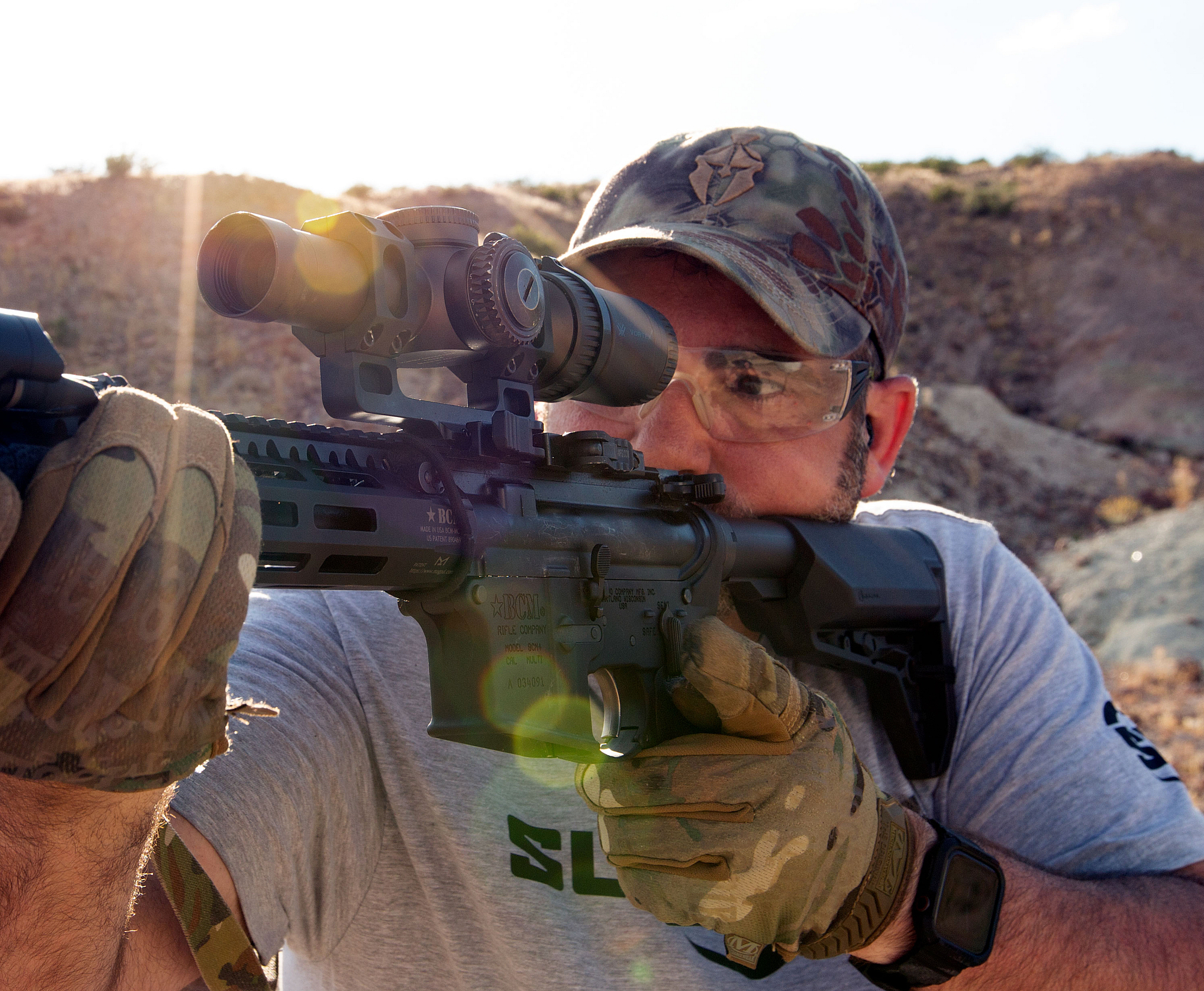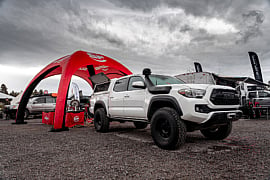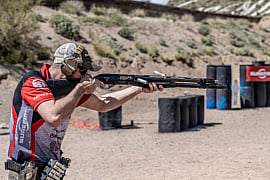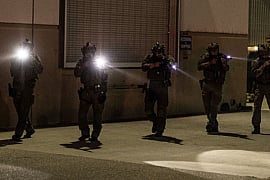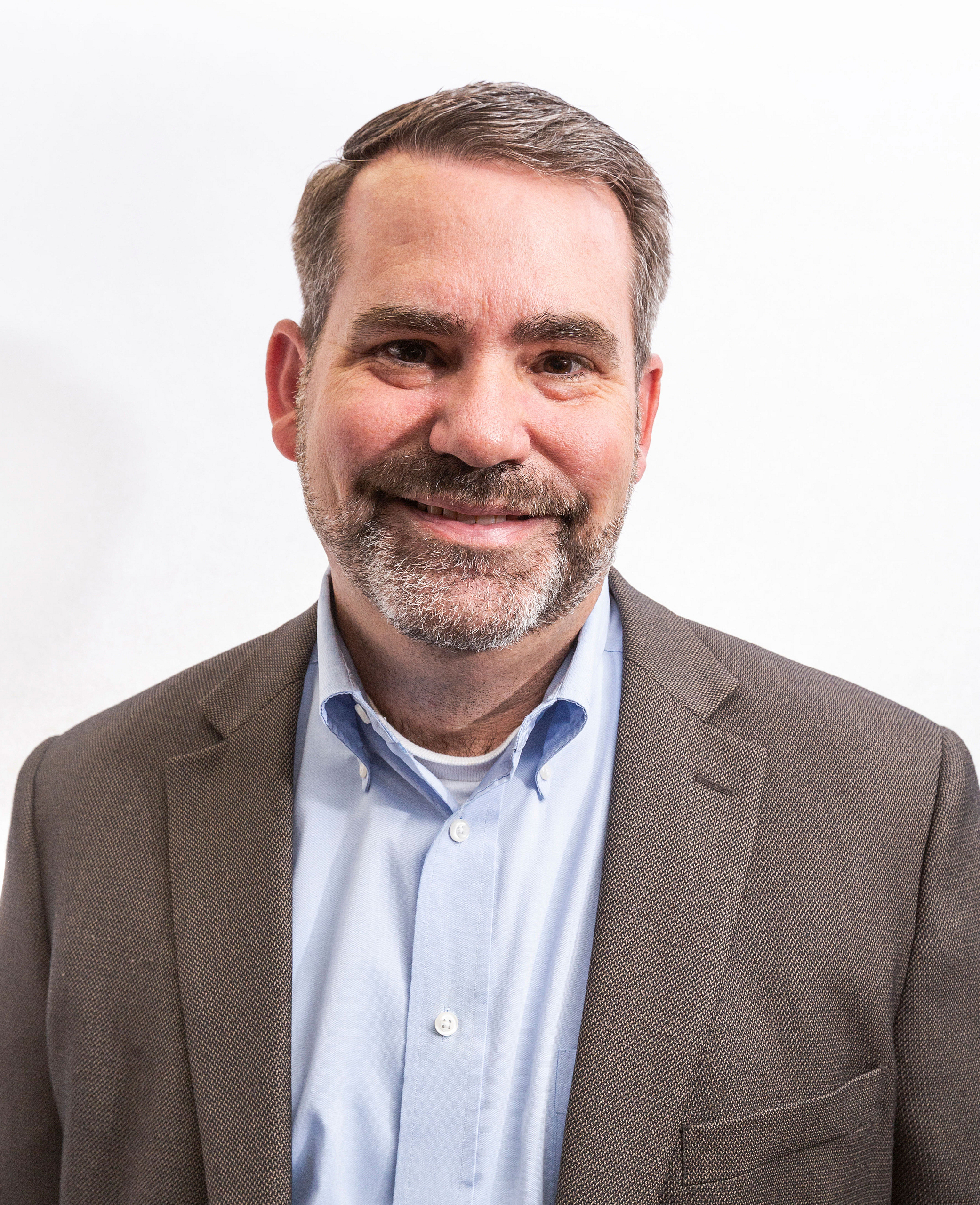
Spend five minutes with Jeremy Rosenberg, SureFire Vice President of Sales & Marketing, and you might think he’s a firearms industry lifer who has enjoyed an organic progression to his current role. You might even think he descends from a long line of proud gun owners or perhaps served in the military or with a law enforcement agency. Nope.
It isn’t because Rosenberg exhibits any pretentious mannerisms that would lead you to those conclusions. It’s simply because of his unwavering passion for SureFire products and for the firearms industry, to which he has devoted more than 13 years of his life. Not some overzealous fanatic, Rosenberg presents a calm demeanor, a sense of humor, and a pragmatic management style that has helped SureFire not only survive but thrive in the turbulent social and economic times we’ve all experienced recently. He also has a positive outlook on SureFire’s future, and he is intensely focused on connecting a wave of new customers to the brand.
SF: What are three things that people might be surprised to learn about you?
Jeremy Rosenberg: That there were no guns in my house, not even BB guns when I was growing up. I had a couple of friends that liked to shoot. When I turned 18, we’d go to the range and rent guns and shoot. I was always into guns, but I didn’t buy my first gun until I started with SureFire in 2008. Also, that I went to college at Berkeley [California]. Go Bears! And that before I started at SureFire, I worked in Silicon Valley for almost 15 years. I worked for Oracle, Intuit, a couple of small startups…I did the whole circuit in the 1990s. Obviously, there isn’t a huge gun culture there either, so it wasn’t until I got here that I started to get seriously into guns and buy them myself.
SF: SureFire was your first industry job?
Jeremy Rosenberg: Yes. I got hired on here as a Product Marketing Manager around 2007. It was a position that didn’t exist at the time. It was kind of a hybrid job that included sales and marketing, and I really enjoyed it. I’d done marketing and sales/sales support prior to that, so it was a fairly natural transition. It was a great way to get into the company and start learning about the products. As a Product Marketing Manager, my job was launching the product — making sure that we had a good launch plan in place, that the marketing was in place and that we had everything ready to go when we were ready to launch a product. It was a good way just to dig into the whole thing.
SF: Is it really the same everywhere you go, or does SureFire’s marketing framework have to be different than companies like Oracle and Intuit?
Jeremy Rosenberg: At the end of the day, marketing is marketing, and sales are sales. Every industry has its unique characteristics, but if you’re going to launch a product, there are certain things you need to do to launch that product. You’ve got to have your sales education ready to go so your reps know what you’re about to launch before it gets out there. You need to make sure your dealers and customers have that information, and then you do your consumer launch. While there are definitely unique aspects to our business and our products when you consider who our customers are, I think it’s a transferrable skill from one industry to another. It’s about knowing the product and knowing your customers.
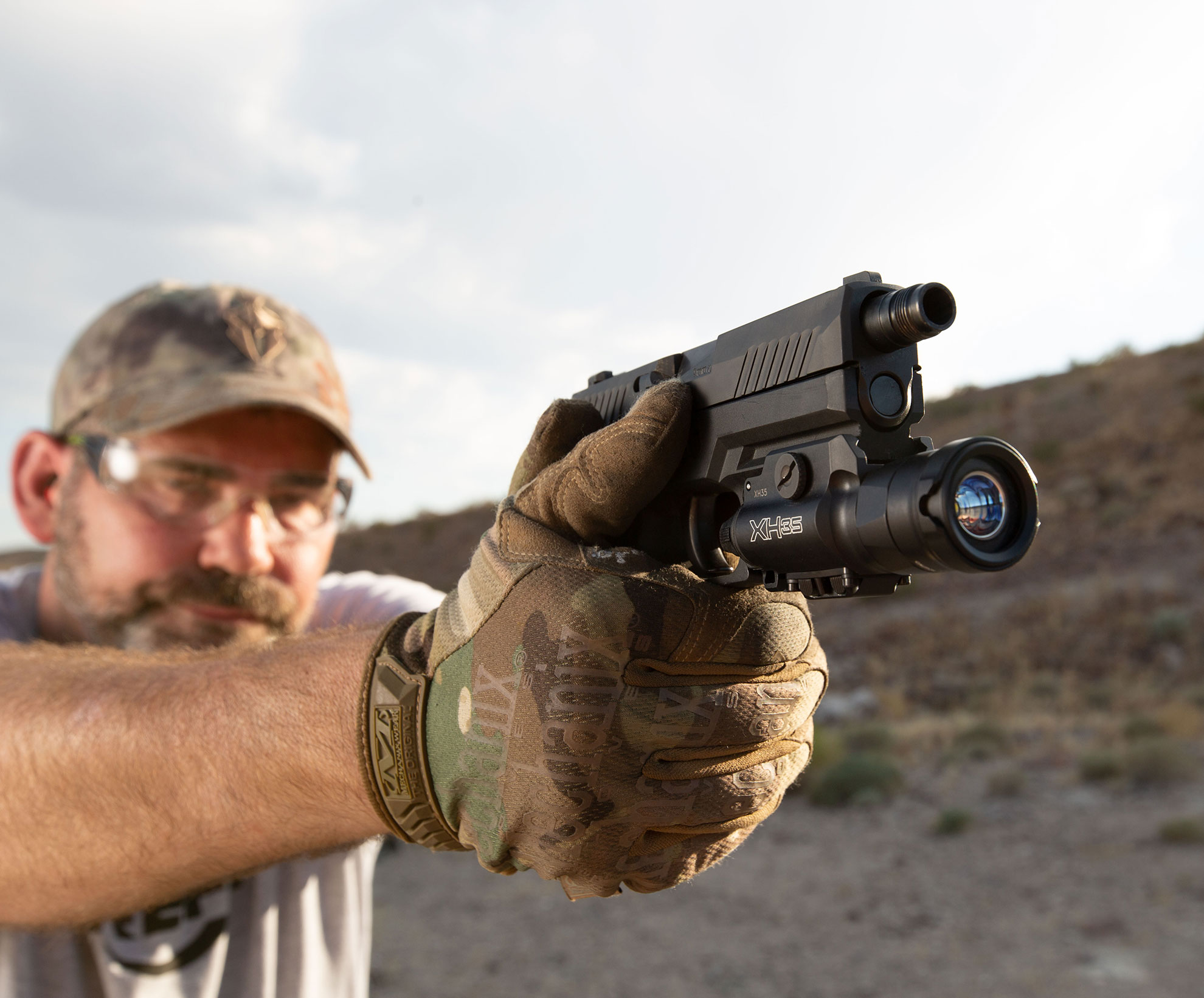
SF: Did you transition into a primary sales role while you were at SureFire the first time around?
Jeremy Rosenberg: Yes. I did the marketing role for maybe two years, and then the Western Regional Sales Manager position became available, and I raised my hand and asked if I could interview for that position. That’s what started my sales role.
SF: How do the two roles compare?
Jeremy Rosenberg: I like Marketing. It’s awesome and definitely an important piece of the business, and I like using that side of my brain. But I also like the definitive nature of Sales — you’ve got a number, you try to hit that number, and you’re hitting the revenue, or you’re not. I also like interacting with the customers, being there in front of them, and working on that aspect. Shoot, the best way to learn about what we do and how we do it is to talk to our customers. They’re so passionate it seems like they know more about this stuff than we do half the time.
SF: Most people in the industry know that you made a move to Springfield Armory. Are you okay with talking about that?
Jeremy Rosenberg: Yeah. It was a really tough decision, but there was an opportunity there that allowed me to grow my skill set. It had nothing to do with how I felt about SureFire, the people here, or any of that. In fact, there were many things about going to Springfield that made me nervous, like I knew it was going to require a move to the Midwest. At the end of the day, it was a phenomenal experience. Springfield Armory is a fantastic company with a lot of passionate people who turn out an excellent product. Additionally, it was a chance to expand my skill set and grow in a position that wasn’t available here.
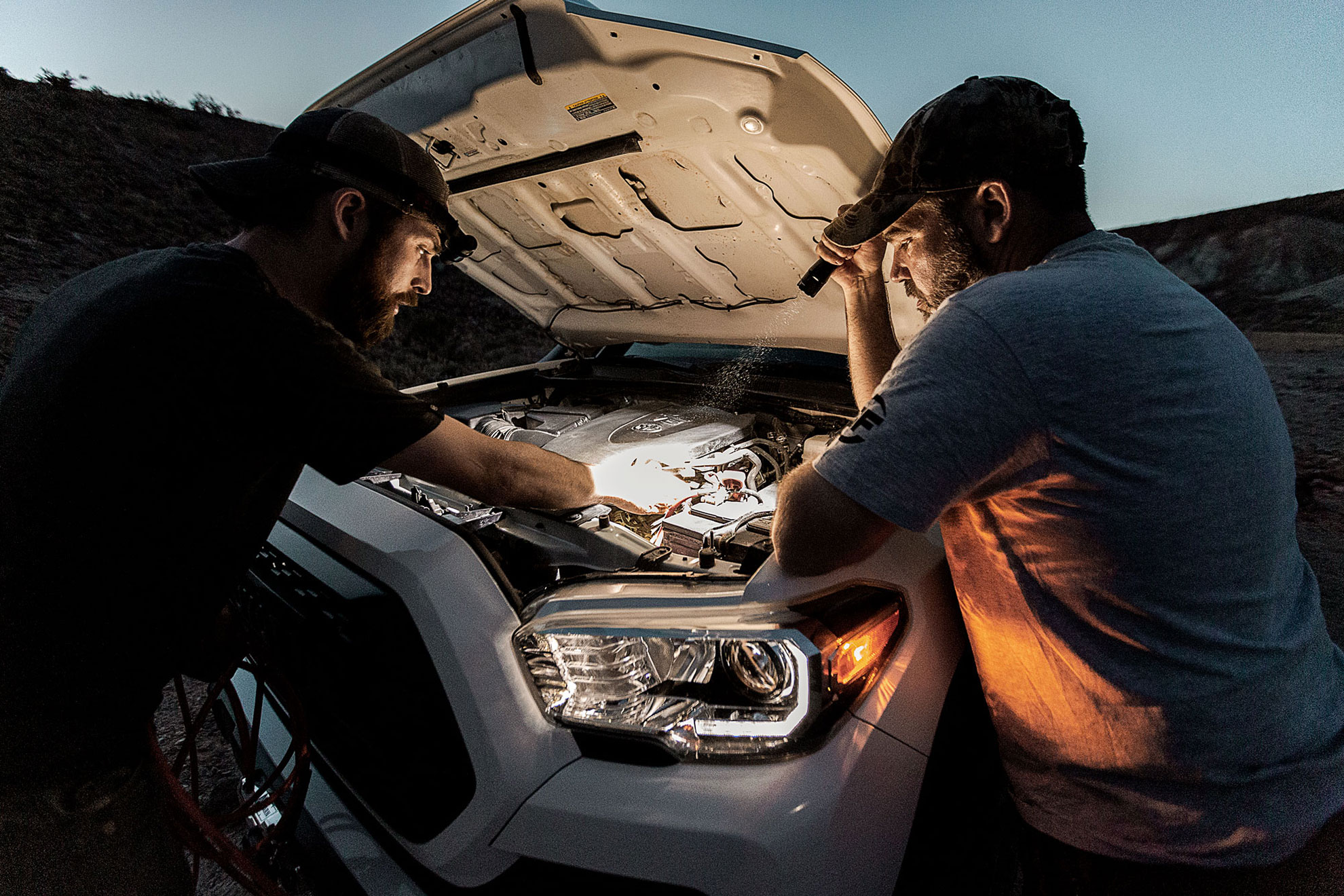
SF: You spent four years there, but you’ve been back at SureFire more than a year and a half. Were there some lessons learned there? Or maybe you went over there and taught them everything they needed to know…
Jeremy Rosenberg: [Laughs] No. I mean, think about it: It was a whole different company and a whole other side of the business. I learned a ton while I was there, and I think it made me a better manager and a much stronger leader. Part of it was that I’d been at SureFire for so long, and then I went to this company that, as you may know, has people who’ve worked there for 25 years. And I don’t mean a couple. I mean a lot of them. I was one of the first outsider/new hires they’d had in a long time, so it was a trial by fire. But I was able to integrate and become part of their team in a very short amount of time — which says as much about them as it does about me — and go in there and succeed. That increased my confidence in my own ability, and I learned a whole different side of the business. I also learned how another company in our industry does business, and I was able to take the best parts of that and apply it here.
SF: Maybe the one common denominator that jumps out is that both SureFire and Springfield Armory are helmed by owners/leaders who have firm convictions in what they’re doing and how their companies achieve goals. At Springfield, it’s Dennis Reese, and at SureFire, it’s Dr. John Matthews.
Jeremy Rosenberg: Yes, there is a kind of cult of personality around Denny and John. There’s definitely that similarity for sure, but the company cultures are completely different. SureFire is more corporate in structure, while Springfield is more family-run. I cut my teeth in an environment with a lot of procedure and policy, where things are documented and laid out, and then moved to a place where things are more nebulous but also more agile. It allowed me to come back to SureFire and ask why we do things the way we do, and if there’s no good answer, then to try a different way. But, you also have to remember that SureFire is a government contractor, and we’re ISO-certified, so there is a reason that certain policies and procedures are in place. So, if we ever get audited by the government, we have our stuff together and it’s no problem.
SF: If you look back on the year and a half since your return to SureFire, what do you feel are your most significant accomplishments?
Jeremy Rosenberg: I haven’t achieved them yet because a lot of what I’m trying to implement are works in progress. One of the over-arching goals, as far as sales, is to encourage and help empower SureFire to be as customer-focused as we possibly can. That means enabling everyone in the organization to do what is right for the customer. We have an excellent customer service infrastructure, but one of the first things I did was get those guys together and tell them, “You will never get into trouble for doing the wrong thing if you thought at the time that you were doing the right thing for the customer. Err on the side of the customer.” That goes for everyone, from the guys talking on the phone to our end users to how we work with our dealers and distributors both in the U.S. and internationally.
The roots of SureFire are that of a military sales company. That’s who we are. But today, right now, things have shifted quite a bit to the consumer side of the business. That doesn’t mean that we’re turning our back on our core customer base, which is military and law enforcement — in fact, it’s the exact opposite. That being said, there’s a very different way of handling the consumer when compared to the military customer. There may be a little bit of a culture shift as we deal more with the consumer.
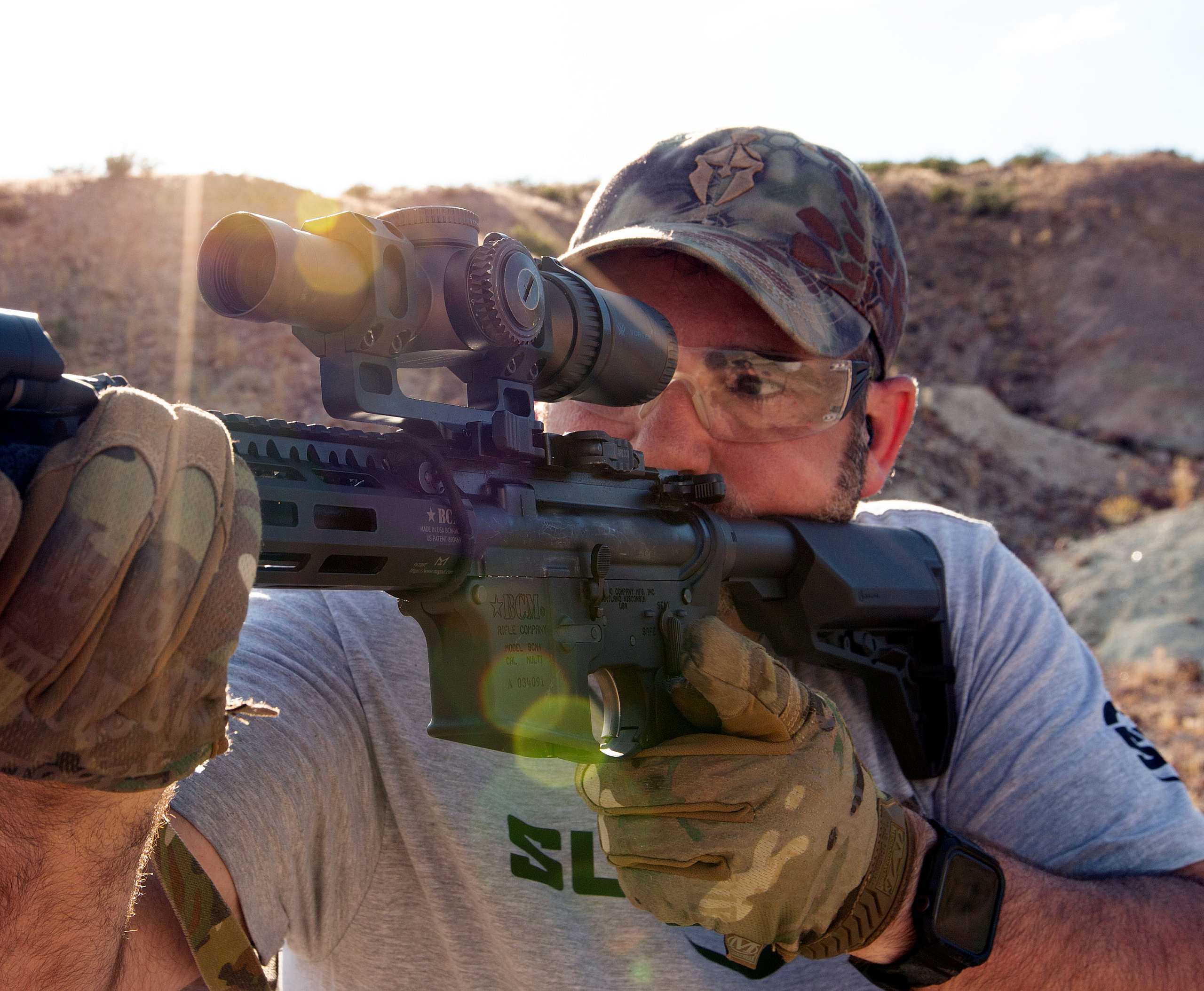
SF: With 8.5 million citizens becoming first-time gun owners in 2020, will that culture shift include a lot of product education about why SureFire products are the best in their respective categories?
Jeremy Rosenberg: It’s even more fundamental than that. We need to teach these 8.5 million new gun owners why they need a flashlight on their gun or next to their gun. Not everyone has gone through that mental exercise of “What if someone is coming into my house at night and it is dark? I need to do something.” You’re going to need to see very well before you can make any decisions. You need a high-performance light, and if you need a high-performance light, you need a SureFire. Also, as an industry, we have to make sure we are talking to these newcomers the right way.
SF: We talk about all of these new gun owners, but even without them, the industry has seen unprecedented market growth in the wake of civil unrest and the Covid-19 pandemic. What is being done to meet the demand for SureFire products?
Jeremy Rosenberg: It has been a huge challenge across our organization, and I will tell you that one of the things I firmly believe is that we are coming out of the other side of this a better company. There are multiple ways that you can handle this as a company, but what we have to do, and what we are doing, is to balance that need to expand our production without overexpanding, knowing that this is temporary. Whether it is a year, two years, or three years, it’s not going to last. It never does. On the one hand, yes, we have expanded production — added shifts, added people, added machines — but in a very smart way.
And we’ve also become more efficient. We’re controlling our supply chain better, and we aren’t single-sourcing components anymore. We’ve developed better relationships with the vendors supplying our components so that we’re first in line and not second or third in line when it comes time to get allocation from them. We’re getting better at what we do. We’re keeping the product in the pipeline and flowing out the door, and that gives us an opportunity to gain market share because we do have products on the shelf and are shipping them regularly.
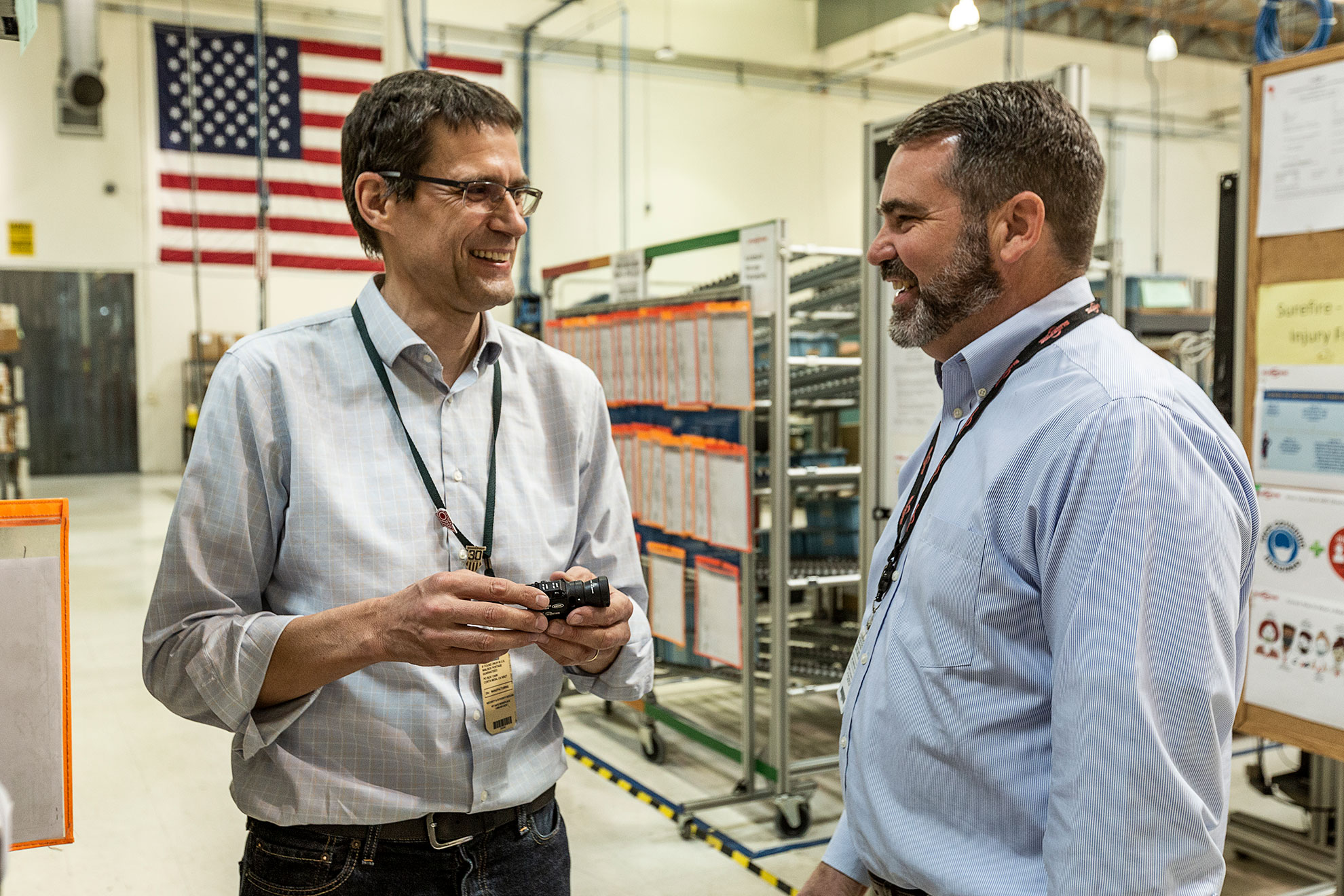
SF: Remaining committed to American manufacturing has got to be a plus in all of the recent chaos.
Jeremy Rosenberg: That goes back to what I said before. Our competitors have not been able to control their supply chain as well as we have. A significant portion of their product line is sourced overseas, and Asia was hit harder than anywhere else in this entire pandemic crisis. The fact that our vendors are down the street or a couple of states over, and we are as vertically integrated as we possibly can be and have as much control over our production as we do, has absolutely helped us.
So, there’s a practical side of it that has been really good for us, but it is also in our DNA as a company. It would be easy for us to say, “Let’s just do some of this stuff overseas,” especially with pricing pressures and all of that. But it is important to everyone in the organization, from Dr. Matthews on down, that we keep jobs in the U.S. and that we have complete control over the production and quality of our products. It is core to our company and to our mission that we maintain U.S.-made products. It’s all built right here, so if something goes wrong, all we have to do is walk out onto the production line to see what is happening. If you’re making things overseas, you lose that level of control.
SF: Sales drive revenue, but isn’t customer service before, during, and after a sale a critical component that can make or break a company?
Jeremy Rosenberg: Yes, and ours definitely isn’t broken. We lean on our customer service. When you’re a premium brand, and a customer is going to spend $200 or more on a flashlight, their expectation is that if something goes wrong with that flashlight, you’re going to take care of it. I always tell people who ask about our lifetime warranty, “Look, I don’t care where you bought it, who gave it to you or who you stole it from, if you have a SureFire flashlight, and it doesn’t work, we will take care of it. I don’t need proof of purchase. Just send it in, and we will take care of it. That’s what we do.” Customers can be very forgiving as long as you make it right, even if you make mistakes. Companies make mistakes. There can be issues in any manufacturing organization. There is no such thing as 100-percent perfect going off the assembly line all the time. It’s how you handle those mistakes, how you handle that situation, that makes or breaks you as a company or as a brand. We do very, very well at that.
It’s very easy to sell somebody their first $200 flashlight, but if you don’t have the customer service, the quality, and everything behind it, it will be very difficult to sell them their second one. Word of mouth is everything in business and we rely on that customer recommendation, it is vital to our success as a company. We take care of our customers. They bought SureFire. If something goes wrong, we handle it.
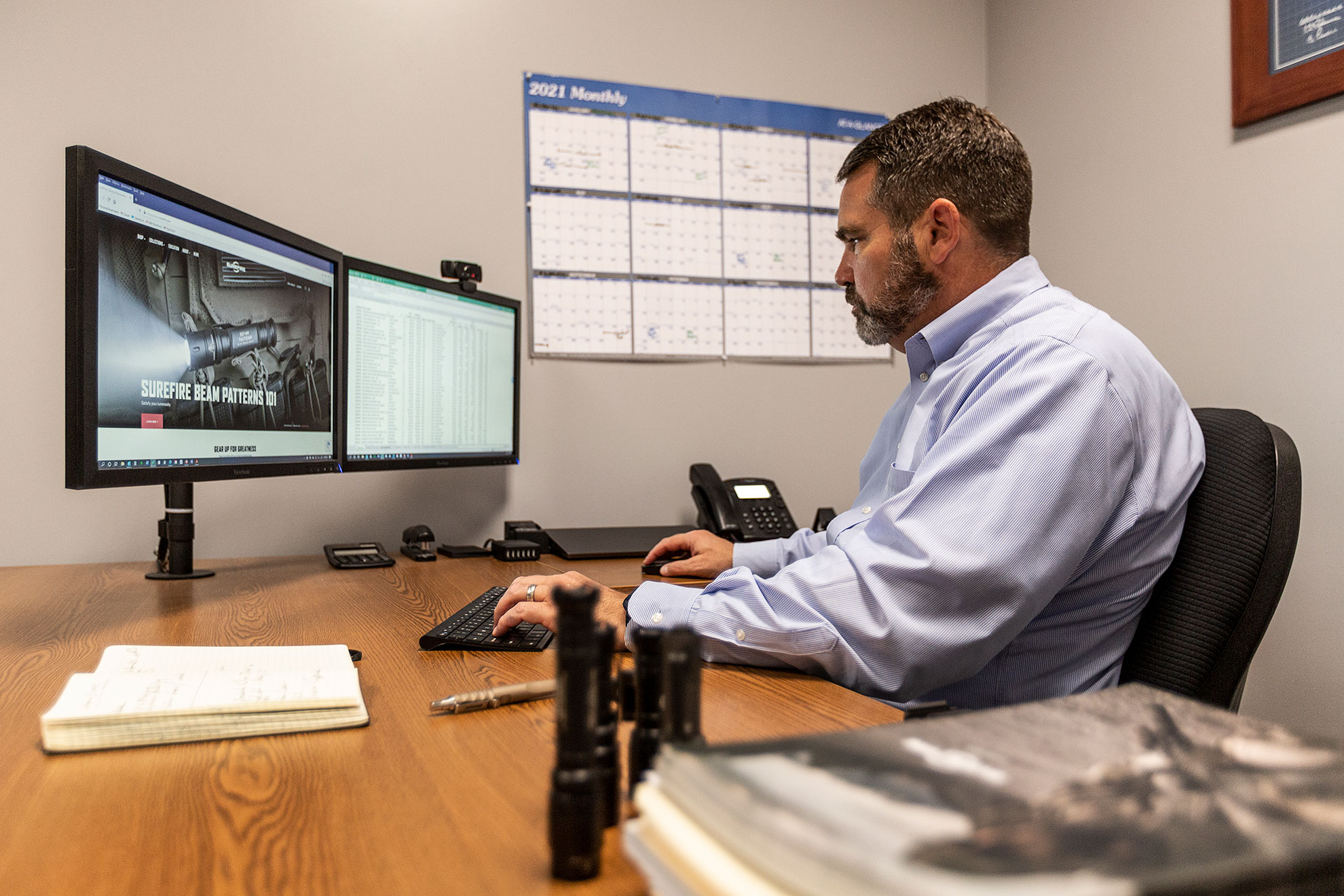
SF: What would you tell people who are interested in working in the firearms industry?
Jeremy Rosenberg: I think they have to have the right expectations of what it means to be in this industry to actually work in this industry. Whether I worked here or at Springfield, people would say to me, “Oh man, you must get the chance to shoot all the time. You’re probably always on the range, shooting.” And I’m like, “…No.” [laughs]. If I’m on the range, I’m loading magazines for someone else, or I’m setting up guns for someone else or dragging steel out onto the course. I’m putting up pop-ups or getting my presentation ready. If I get to shoot a couple of mags at the end of an event because no one else is there anymore, then yeah, okay.
So, one, you’ve got to love it. If you don’t, you’re not going to enjoy it. As awesome and cool as it may seem—and it’s all of that, it’s also a lot of hard work, and you can’t be afraid of hard work.
SF: Shifting gears, how is life for Jeremy Rosenberg outside of SureFire?
Jeremy Rosenberg: It’s great. Married with three kids — two boys and a girl, 16, 14, and 12 — so life outside of work is all about handling their activities. My two boys shoot trap competitively, so we do a lot of traveling, going to trap meets in the area, practice, and all of that. One of them plays hockey, so that keeps us busy as well. When I’m not here, it’s just being with the family and finding the time to go camping or take trips, that kind of thing. I also like to cook. That’s my zen place, just get in there and get super-detailed, focusing on that. I like to grill and smoke meat, but I’m also into Asian and Italian cooking. You name it, and I like to do it all. It’s like playing a musical instrument. You get to a point where what you’re playing is what’s written on the music sheet, but eventually, you start to improvise. That’s what I like about cooking. I don’t bake because baking is more about precise measurements. I like to improvise, to maybe start with a recipe but then go, “Okay, yeah. I’ll start there, but then I’m going to go off in this direction.”
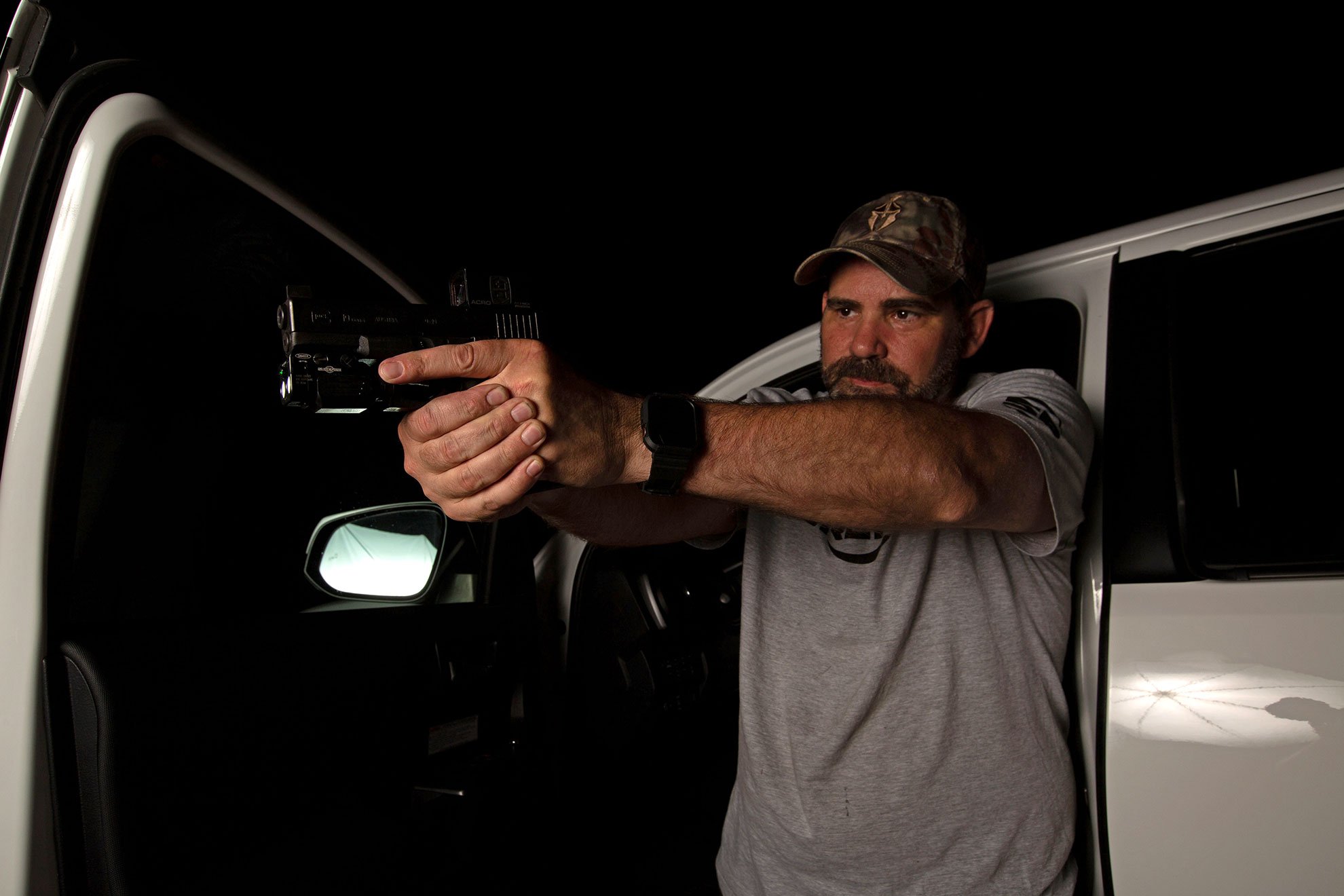
SF: Lastly, speaking of direction, where would you like to see SureFire in, say, three, five, or 10 years?
Jeremy Rosenberg: That’s a tough question to answer, but I know we will continue to introduce a lot of great new products. I won’t get into specifics, but I’m pretty confident that some of them are really going to surprise the market. Whether in the short term or the long term, though, SureFire will continue to do what it has always done. We will continue to be the market leader in innovation, quality, and lifelong durability.

